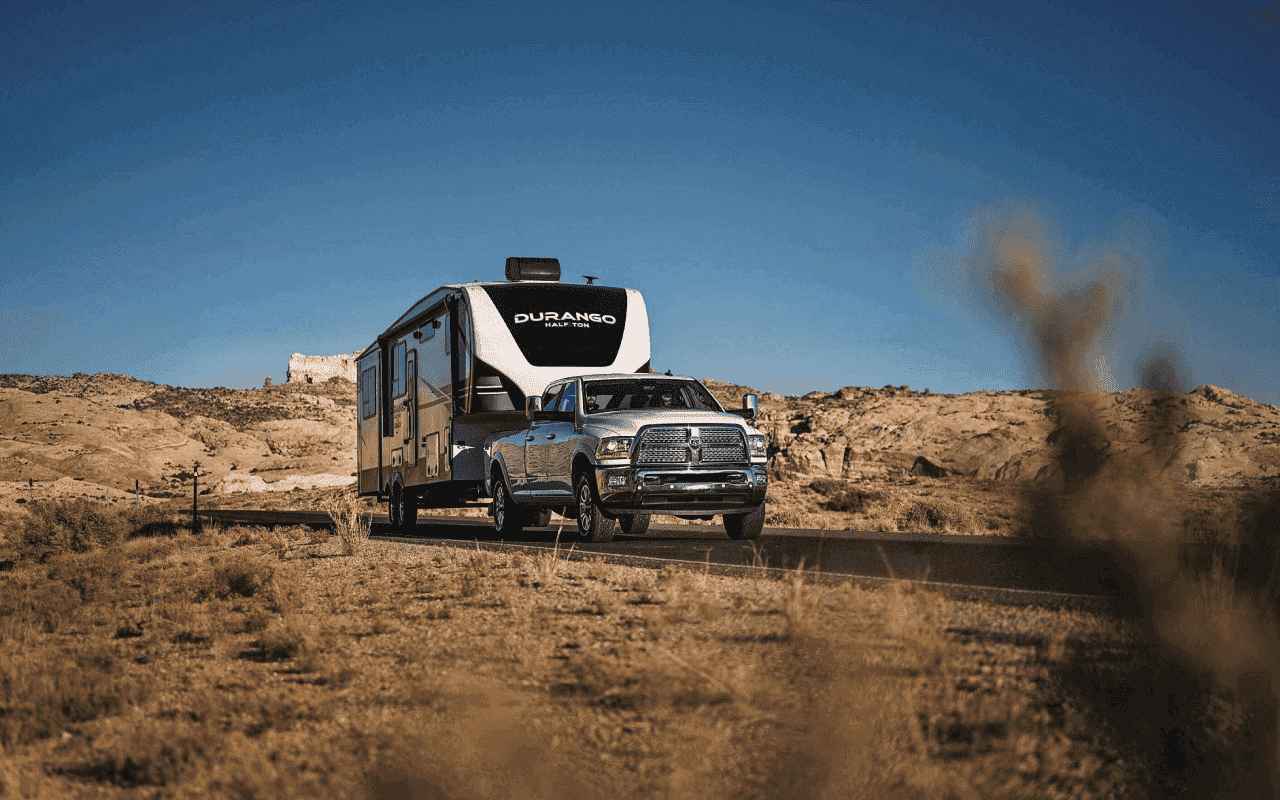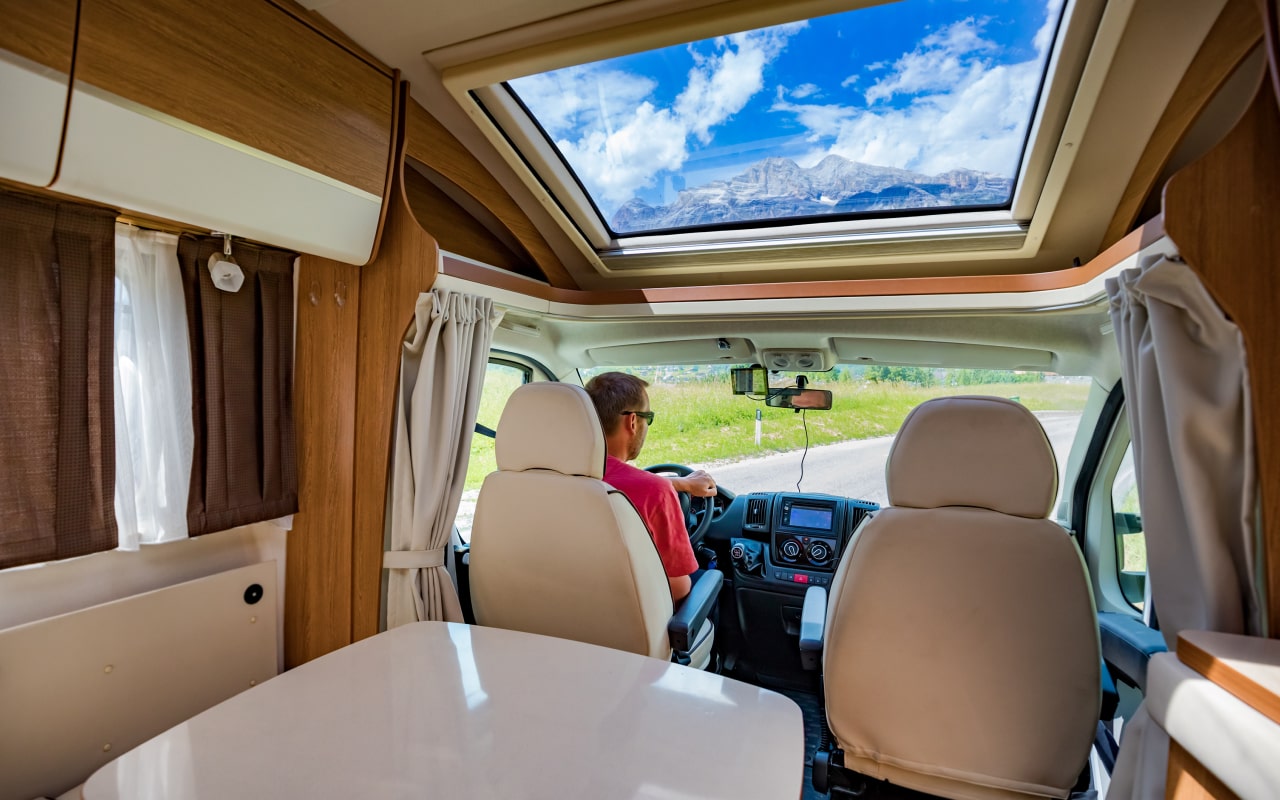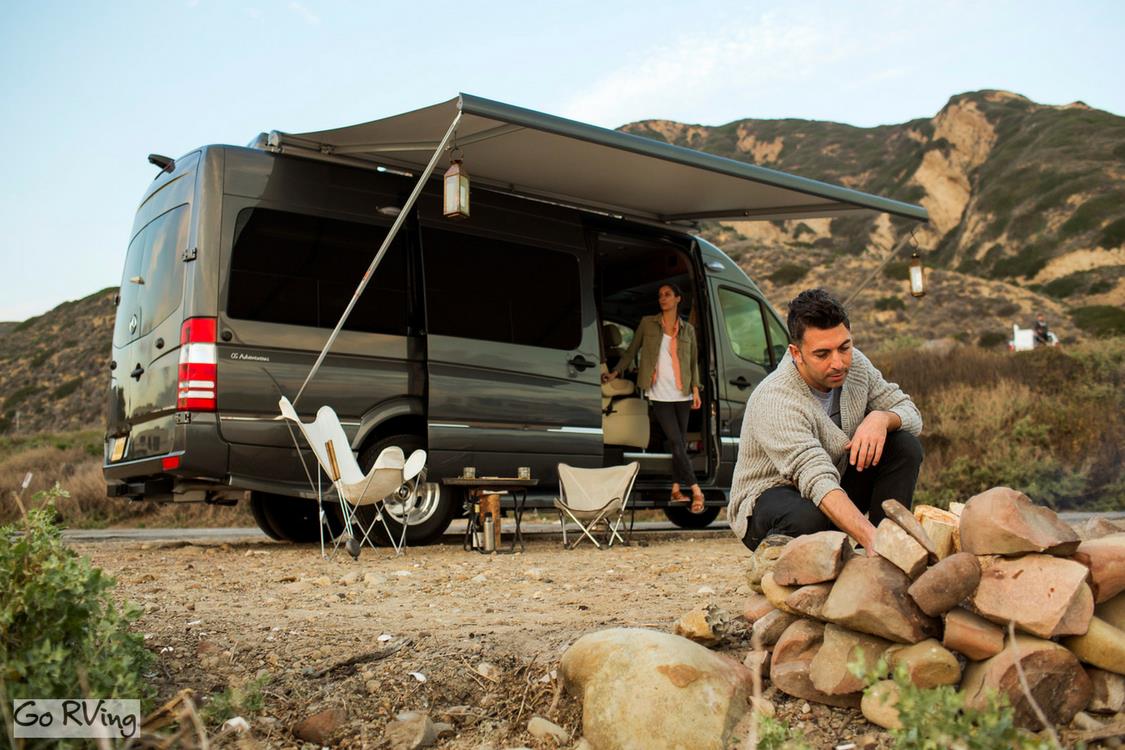
You've got the keys to your RV and you're ready to hit the road! Maybe you're looking for an unplugged vacation, or you're planning a different type of adventure. Wherever your travels are taking you, it's important to be fully prepared for your first RV trip. If you're new to the world of RVing, a little extra prep is needed so you can avoid common first-time RVer mishaps and hiccups. So before you start driving, explore these tips for your first RV trip.
First Time RVing Tips
There are countless RV tips to consider when it's your first time hitting the road or camping. For your first RV trip, we suggest keeping the following tips in mind:
- Before even hitting the road, read and even re-read your RV's manual. This can help you understand the unique operating aspects of owning an RV along with tips for towing, camping, and more.
- Review our RV glossary of terms to familiarize yourself with common terms in the world of camping.
- Learn about the tanks in your rig. Depending on the type of RV you own, you'll need to ensure the black, gray, and freshwater tanks are at the proper levels.
- Secure your RV furniture before hitting the road. This may mean locking cabinets closed, closing up furniture, or retracting extended components.
- Check your state's RV license requirements. Some states require RV owners who are registering a recreational vehicle of certain characteristics to get a special license. There are only a few states with extra license requirements that typically apply for RVs over a certain size, weight, or number of passengers.
- Learn more about towing needs and weight distribution. If you're towing an RV like a 5th wheel or travel trailer, you'll want to practice hooking up your RV and your towing vehicle to ensure everything is properly connected.
One of the most important first-time RV camping tips is to have a trial night of camping close to home before you hit the road. Some RVers choose to have their practice night of camping right in the front yard, backyard, or driveway. This can have its benefits as you're right next to your bricks and sticks home in case you need anything.
If you'd prefer a first camping setup that's a little more immersive, consider camping close to home at a nearby RV park. This can help you experience camping at a site with hookups without having to drive far from home. You'll be in the RVing mindset but still in a familiar area where you can get any additional help or resources you might need.
There are considerable benefits to having a test run of your first night of camping close to home. Most importantly, it helps you familiarize yourself with your RVing responsibilities while lowering the stakes by keeping you in an area you know well. You'll learn exactly what it takes to camp, helping build confidence for camping at destinations much farther from home.
Planning Your First RV Trip
The open road is calling, and you're ready to answer the call with your RV. Driving an RV can be different than driving a standard passenger vehicle, so it's important to plan your RV route, especially for your first RV trip, accordingly. Follow these tips when planning your very first RV trip:
- Pick a route type that's within your comfort zone of driving. This will help you get used to driving the rig without driving it in roadway conditions you may be less familiar with.
- Don't over-plan your route. After all, the fun of RVing is following a degree of spontaneity when you're on the road. While you might have your RV campground reservations sorted out before you even start the engine, your exact day-to-day itinerary should be a little more fluid for your first RV trip.
- Set realistic expectations for how much you can drive each day. Part of RVing is enjoying your adventures at a slower pace, so don't rush it! Make sure to plan a realistic amount of driving for each day so you are not stressing.
- Research the rules of each area you're visiting in regards to RVing and RV seat belt laws. Some states have different rules that you need to follow when you're driving through.
There are many other components to keep in mind when planning your first RV trip, such as properly packing your rig to help reduce pit stops. We've put together an RV packing list to help make this much easier!
First Time RV Camping Tips
You've practiced camping close to home, planned a great RV road trip itinerary, and you're ready to get to camping. Don't forget these RV camping tips that can help make your first camping adventure that much easier:
- Reserve a pull-through space for your first time camping if you're able to. This can help reduce worries about backing in your camper for the first time.
- If you're unable to secure a pull-through space, don't panic! Backing in your rig is not impossible, and there are often cameras and other systems on today's RVs to help make things easier. Many other RVers on your campsite might step in and offer to help you back in.
- Set up camp before it gets dark. Driving in the dark is one thing, but setting up camp in the dark is another. When you're new to RVing, you want to set yourself up for success, so set up camp before it gets dark so you'll have plenty of visibility.
- Level, level, level! Choose a level campsite and make sure to level your rig once you're parked. There are jacks, blocks, and even self-leveling systems that can help make things easy.
Whether you're a seasoned RVing pro or you're new to the world of camping, taking things slow can help keep things easy. When in doubt, check our RV's manual and ask for help! Our RV experts are here to help with any questions you may have about RVing. Visit your local Lazydays RV dealership today to learn more!


